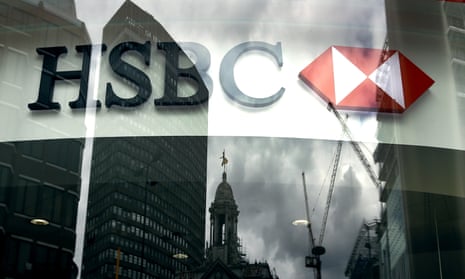Four families of Americans killed by Mexican drug cartels are suing British banking giant HSBC for allegedly contributing to their deaths by allowing the gangs to launder billions of dollars.
It is a fresh setback for the bank, whose operations in Mexico have been under scrutiny by US authorities for years. The bank processed at least $881m in cash for Mexico’s Sinaloa cartel, regarded as the most powerful drug gang in the world, according to US authorities.
The suit claims that HSBC “knowingly provided continuous and systematic material support to the cartels and their acts of terrorism by laundering billions of dollars for them. As a proximate result of HSBC’s material support to the Mexican drug cartels, numerous lives, including those of the Plaintiffs, have been destroyed”.
It was filed on Tuesday in a federal court in the Texas border city of Brownsville. Rob Sherman, an HSBC spokesman, said in a statement that the bank intends to “vigorously” defend itself against the claims and is “committed to combating financial crime and [has] taken strict steps to help keep bad actors out of the global financial system”.
In 2012 a US Senate report described the bank as having a “pervasively polluted” culture that saw it allow drug kingpins, rogue nations and terrorists to move hundreds of millions of dollars around the financial system. US prosecutors said that deposits at Mexican branches were so frequent that drug traffickers used boxes that were designed to fit perfectly through the teller windows. HSBC apologised, pledged to reform its procedures and paid a $1.9bn settlement to US authorities.
On Tuesday a judge in New York said he would probably delay the release of a report by a federal monitor appointed to examine the level of HSBC’s compliance since that agreement.
The lawsuit graphically details several murders at the hands of some of Mexico’s most brutal cartels.
In one incident, Lesley Redelfs, a US consulate employee in the Mexican border city of Ciudad Juárez, and her husband, Arthur, a detention officer in El Paso, Texas, were ambushed after leaving a children’s birthday party in Juárez. Their SUV was sprayed with bullets and Lesley Redelfs, who was four months pregnant, was shot twice in the head. Her husband was gunned down as he tried to reach the border and their seven-month old daughter was found screaming in the back seat.
Two months later, in May 2010, as Rafael Morales Valencia stepped outside a church after his wedding ceremony, assassins invaded the courtyard, forced the wedding party to the ground then kidnapped the groom, his uncle and his brother. They were transported to a safe house, tortured and asphyxiated by duct tape wrapped around their faces.
“Driven by its desire to expand its business and increase revenue, HSBC intentionally implemented criminally deficient anti-money laundering programs, processes and controls, which were designed to guarantee that billions of dollars would go through its banks undetected or unreported. And that is exactly what happened,” the lawsuit alleges, claiming that due diligence processes at Mexican bank branches were non-existent or fabricated, allowing suspicious individuals to deposit hundreds of thousands or even millions of US dollars.
The suit says that money laundering is essential to the cartels’ prosperity because “without the ability to place, layer, and integrate their illicit proceeds into the global financial network, the cartels’ ability to corrupt law enforcement and public officials, and acquire personnel, weapons, ammunition, vehicles, planes, communication devices, raw materials for drug production, and all other instrumentalities essential to their operations would be substantially impeded”.
It describes the cartels’ activities as “terrorist acts” in a bid to argue that HSBC is liable under the US Anti-Terrorism Act, which allows survivors of terrorist acts to demand damages from organisations that provide material support to terrorists. HSBC and several other banks are the subjects of a lawsuit from US soldiers accusing them of financing terrorists who attacked American troops in Iraq.
Arab Bank, headquartered in Jordan, was successfully sued by US citizens who brought claims under the Anti-Terrorism Act. It was accused of facilitating Hamas attacks.
However, unlike Hamas, the Mexican groups are not designated as terrorist organisations by the US State Department. A 2011 attempt by a Texas congressman to put the top cartels on the list faltered amid concerns it would damage America’s relationship with Mexico and arguments that the groups do not fit the definition of terrorism as they are motivated by money rather than political ideology.
